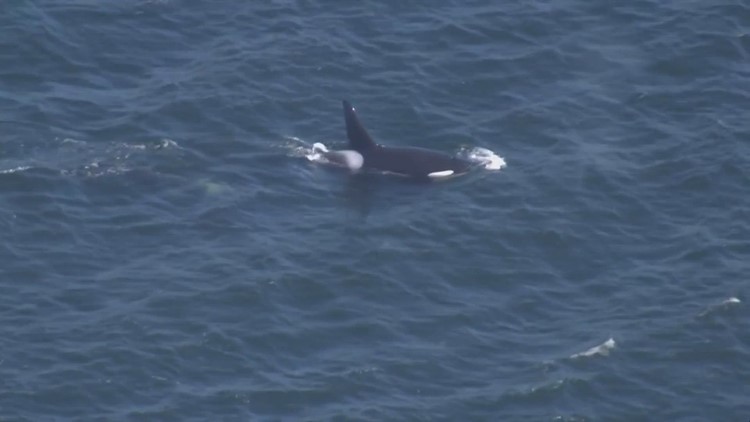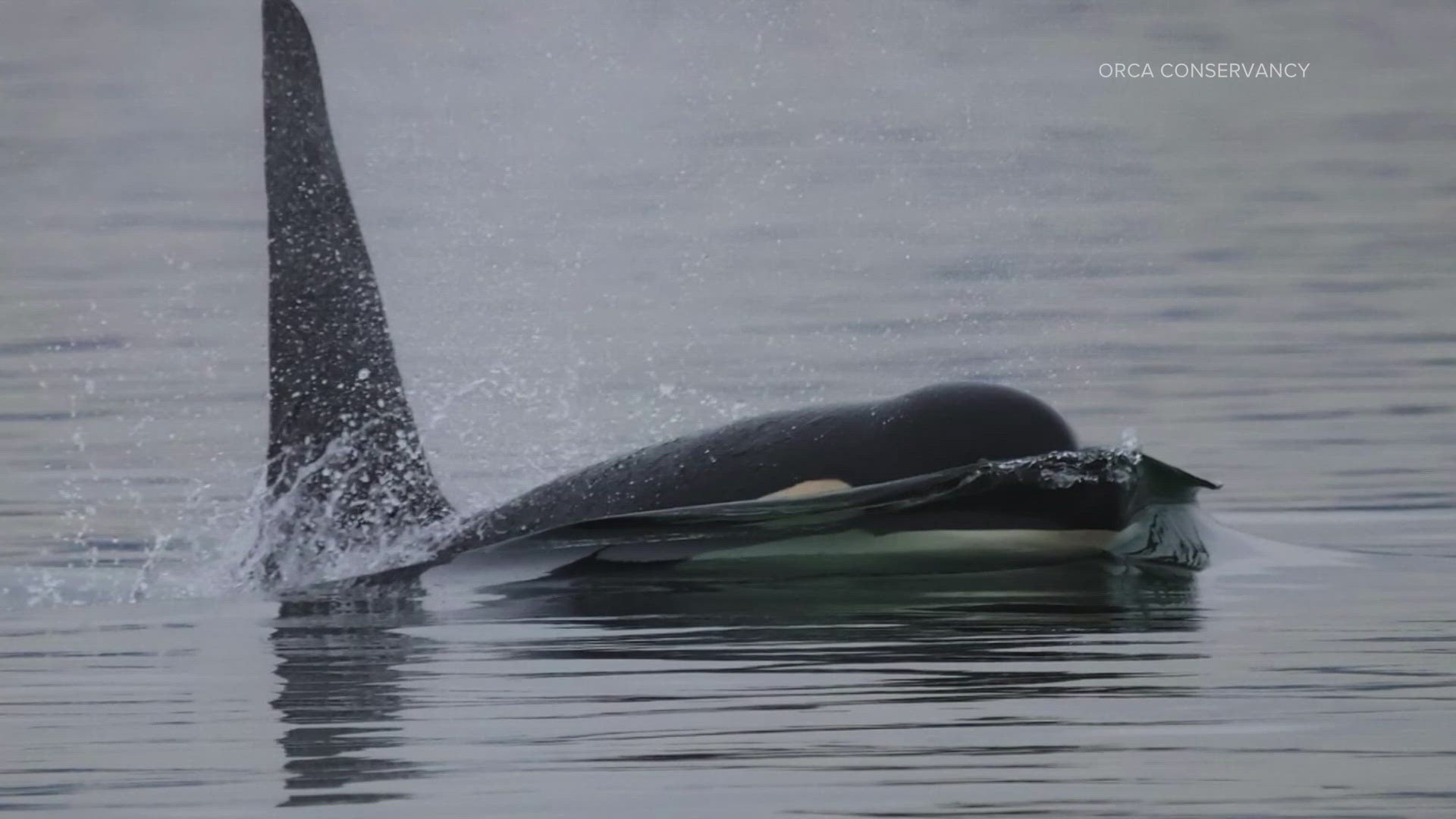OLYMPIA, Wash. — The Washington Department of Fish and Wildlife (WDFW) issued an emergency order requiring whale-watching boats to stay farther away from 11 vulnerable killer whales this summer.
The emergency ruling comes after several Southern Resident killer whales (SRKW) were reported to be in "poor condition." Of the 10 whales in the poorest condition, six are from the J pod, three are from the L pod and one is from the K pod. The other whale, J-36, is believed to be in late-stage pregnancy, according to the Researchers from Sealife Response, Rehabilitation, and Research.
All commercial whale-watching vessels are now required to stay at least one-half nautical mile away from the 11 vulnerable whales. While other boaters do not fall under the emergency rule, the WDFW encourages all boaters to do the same.
Thirteen whales were designated vulnerable last summer. This is the third straight year an extra space order has been handed down by the WDFW.
While under current rules, some viewing of Southern Resident orcas is permitted from July to September during certain hours, commercial boats have not been permitted to approach whales categorized as vulnerable and therefore don't come near any Southern Resident orcas. Most commercial operations instead view healthier populations, including Bigg's (or transient) killer whales.
All boaters are also urged to treat any orcas observed and endangered if unable to distinguish between killer whale ecotypes.
What's wrong with the whales?
The 10 whales in poor condition fall in the lowest 20% of previous measurements for their age and sex, and the whales in this state have a two to three times higher probability of death, according to the WDFW.
At least one whale, J36 (Alki), is still in late-stage pregnancy as of June 2023. But over two-thirds of Southern Resident killer whale pregnancies result in miscarriages or early mortality of calves that are born. Alki is included among the whales conferred with vulnerable status in hopes of improving her chances of a successful birth and recovery.
For more information on how to Be Whale Wise this summer, click here.
Recent legislature increases protections for orcas
A bill that passed Senate in April will require all unlicensed vessels to stay 1,000 yards or roughly one-half nautical mile, away from Southern Resident orcas. It is set to take effect in January 2025.
Currently, boaters must stay at least 300 yards from the orcas and at least 400 yards out of the path in front of or behind them. Vessels are required to reduce their speed to 7 knots within a half mile of a Southern Resident pod.
There are limited exemptions for situations like oil spill response or compliance with vessel traffic service or safety requirements.



